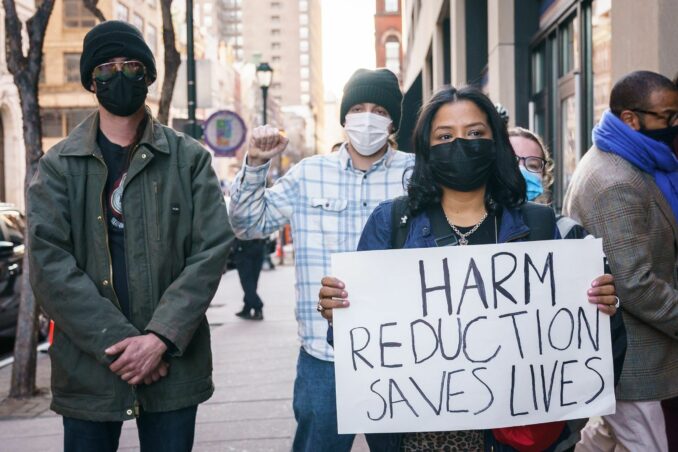Politicians attack harm reduction programs
It’s 2024 and people are still buying into anti-addict, anti-houseless politics in the age of the opioid epidemic and record poverty in Philadelphia. Council member Quetcy Lozada, whose heart seems to be extraordinarily hardened against drug addicts and problematic users, is using her political position to attack harm reduction-based organizations Savage Sisters Recovery and Prevention Point Philadelphia.
Lozada claims to have “concerns” about both Savage Sisters and Prevention Point Philadelphia, saying they have harmed the community and are “bad neighbors,” because they enable drug users to keep using. Lozada explicitly said she wants to kick these nonprofit agencies out of Kensington, and, presumably, does not want them to operate in any way whatsoever. But Lozada’s real goal is to clear the neighborhood for gentrification.
The basic, fundamental problem with Lozado’s attack campaign is that drug users have used — and will continue to use — drugs in the absence of these supportive harm reduction systems. And without harm reduction services, more people will die.
Prevention Point Philadelphia is vital

Protest last fall in Philadelphia makes a key point.
The social service agency Prevention Point Philadelphia promotes health, empowerment and safety for communities affected by drug use and poverty. Prevention Point provides fentanyl test strips to detect the presence of ever-deadly fentanyl and fentanyl analogues and the horse tranquilizer xylazine. Fentanyl and its analogues can kill within only a few minutes, and xylazine destroys skin and veins.
If Prevention Point Philadelphia disappeared today, the drug users who need their services would appear in area hospitals as overdose victims and victims of infections and sores.
The agency, in operation since October 1992, also provides needle exchanges to prevent the spread of HIV (Human Immunodeficiency Virus) and HCV (hepatitis C virus), whose treatment costs can be in the thousands or tens of thousands of dollars. If a single needle keeps a person from sharing needles, the risk of HIV and HCV is decreased. From a financial perspective, which should be Lozada’s concern, access to clean needles saves millions of dollars in medical debt that the government would have to pay.
Founded in 2018, the nonprofit Savage Sisters does outreach to addicts in Kensington, providing hot meals and other food, clothing and harm reduction tools such as Narcan. They run multiple recovery houses where addicts live while receiving therapy or other drug treatment before returning to “normal” lives post-drugs.
The organization obeyed the lease on their storefront to the letter but — at the behest of the Lozada and the Kensington Caucus — their lease was not renewed. Without a central place to operate from, their work in the community is threatened. This interference in the work of harm reductionists does nothing to help Kensington as a neighborhood and, in fact, may make it worse.
Lozada and the Kensington Caucus want to eject people they consider undesirable, as the city has done before in Kensington. In 2017, Philadelphia police razed a huge homeless camp known as El Campamento, which was hidden from public view behind railroad tracks in Kensington. Yet without providing viable housing alternatives, the houseless from the camp simply dispersed into smaller tent cities spread throughout the city. (tinyurl.com/4623u4v8)
People can get off drugs when their material conditions are met – when they have housing, education, work, access to medication-assisted treatment, access to healthcare — things of that nature. At their very core, these are basic requests that deserve to be met and which the two service agencies under attack actually provide.
The harm reduction path needs to be fought for. Addicts, loved ones, people in recovery, people who care, and revolutionaries need to come together on this subject immediately. We need to put pressure on Lozada to support harm reductionism and to understand that Savage Sisters and Prevention Point Philadelphia save lives and will rebuild a shattered neighborhood wracked by misery and despair. We need to pressure politicians into caring about addicts’ lives.

